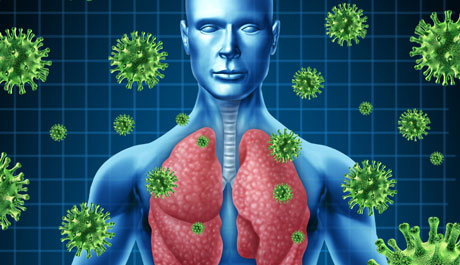8 Facts You Need to Know About MERS
Jul 17, 2015 • 8List

Jul 17, 2015 • 8List
But what is MERS? Here are some key facts you should know:


A viral respiratory disease, MERS-Cov is the acronym for Middle East Respiratory Syndrome-Corona Virus. It is the virus that causes MERS.


According to the Center for Disease Control and Prevention (CDC), the virus most likely came from an animal source. In fact, the disease was found in camels in several countries.
Majority of MERS-Cov cases have been reported in Saudi Arabia. However, as per the CDC, the following countries have also announced cases of the virus: Iran, Jordan, Kuwait, Lebanon, Oman, Qatar, Saudi Arabia, the United Arab Emirates, and Yemen (Middle East); Austria, France, Germany, Greece, Italy, Netherlands, Turkey, and the United Kingdom (UK) (Europe); Algeria, Tunisia and Egypt (Africa); China, Malaysia, Republic of Korea, the Philippines and Thailand (Asia); and the United States of America (Americas).


Common symptoms include fever, cough, and shortness of breath. Some people have also confirmed pneumonia and gastrointestinal symptoms such as diarrhea and nausea/vomiting. Serious symptoms include organ failure (especially the kidneys) and septic shock.
According to the CDC, about 3-4 out of every 10 people afflicted with MERS have died.


Both the CDC and World Health Organization have said that how people become infected with the virus is not yet fully understood. They may be infected from contact with contaminated camels. Spread of the virus from humans to humans was thought to be due to close contact or through the spread of an infected persons respiratory secretions (such as phlegm).


In terms of an epidemic, MERS-CoV isn’t very contagious. While it can be transferred by human-to-human contact, contagion only occurs within close proximity. So far clusters of cases have only occurred within healthcare facilities, where clinical care was given to the infected.

While there is currently no available vaccine to prevent infection, people can employ basic preventive steps to protect themselves, such as washing their hands regularly with soap and water, avoiding close contact with people who are ill, disinfecting commonly used objects (such as doorknobs), and avoiding touching their eyes, nose and mouths with unwashed hands.

According to the CDC, there is no specific antiviral treatment for MERS-CoV. Individuals will need to be tested for the virus first (as symptoms can appear general), and treatment is supportive and based on the patient’s condition. In severe cases, support to vital organ functions must be provided.

Do you have any tips on how to stay virus free this rainy season? Share them with us by leaving a comment!
Input your search keywords and press Enter.
